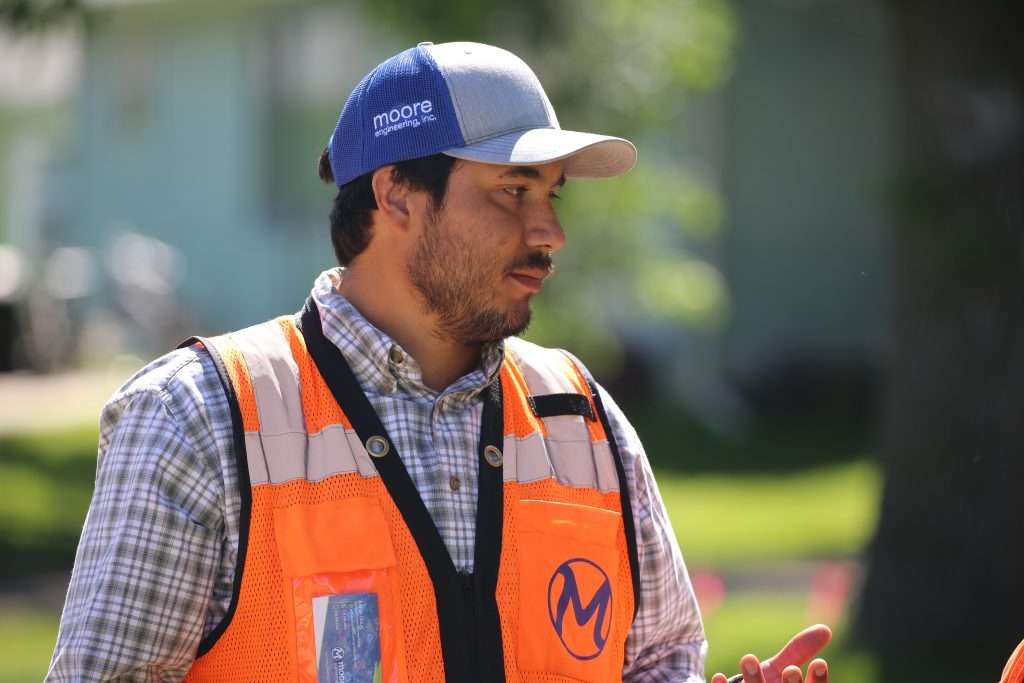FAQ: Meridian Grove 2nd Addition Street Improvements

What is the cost of the project?
The total project cost is currently estimated to be $1,450,000. This is significantly less than the costs shared at the public meeting, due to a favorable bidding climate.
How will the project be paid for?
The project will be repaid through special assessments to the benefitting properties. A preliminary breakdown of estimated special assessments is shown in the table below. The average lot width in Meridian Grove is 80’. The average lot width on 4th Ave SE is 300’. Special assessments may be approved in October of 2026, payable through taxes at the beginning of the following year.
Meridian Grove 1st Addition Properties
– Cost per 80’ lot: $4,314.22
– Cost per Month: $25.30 (20 year term)
Meridian Grove 2nd Addition Properties
– Cost per 80’ lot – $13,924.70
– Cost per Month: $81.65
4th Ave SE Properties
– Cost per 300’ lot: $9,910.95
– Cost per Month: $58.11
What is the anticipated project schedule?
Construction is estimated to begin around July 14th, 2025. The project will be Substantially Complete by September 26, 2025, with turf reestablishment by June 1, 2026.
How will project updates and information be communicated to residents?
The contractor will hand deliver notices to each property 72 hours in advance of construction operation that will disrupt normal property access. This will be the primary means of communication for access disruptions. All other project information can be found on the project website (https://info.mooreengineeringinc.com/Mapleton_24347). There is a form on the landing page to sign up for project updated, where you will receive an email notification each time the website is updated with new information.
Will my property be affected by construction?
Driveway access to many properties will be unavailable while curb & gutter and driveway repairs are taking place. This work is restricted to 14 days. The contractor will deliver notices to each property in advance of this work to allow residents time to remove vehicles from garages. On-street parking will be available in areas where curb is to remain.
On-street parking will be unavailable while the asphalt streets are being milled, and again during paving. The restriction should not last longer than a few hours, though you may need to vary your route to your home during these operations. On-street parking will become available again immediately following milling, and after newly placed asphalt has cooled.
Why is this project needed?
This project was identified as part of a citywide asphalt street study completed in the fall of 2020. The streets were observed to be experiencing settlement caused by the original sewer and water installation. In addition, the settlement is more pronounced around the concrete diamonds around manholes and gate valves, which has created safety issues with snow removal and regular vehicle travel. ADA ramps are also out of compliance with PROWAG standards, which were federally approved in July of 2024.
How will the project be funded?
The project is intended to be funded through the Bank of North Dakota Infrastructure Revolving Loan Fund at 2.0% interest. The loan term is variable, up to a maximum of 20 years for street improvement projects.
Does this project need to be done now?
The city’s intent with this project is to primarily remove the concrete diamonds around manholes and improve overall drainage due to settlement. Public Works has indicated a desire for removing concrete diamonds due to impacts to snow removal equipment. The pavement surface itself is in fair condition (not seeing significant cracking or raveling of the asphalt surface). It is typical to mill & overlay streets within 15-20 years of original construction. These streets were constructed in 2015, so they will be 10 years old at the time of the proposed construction. The City intends to address the concrete diamonds and other concrete work on settled curbs at one time, with one project rather than completing this repair work now and then another mill & overlay project shortly after to capitalize on economy of scale and reduce overall project disturbance. Once the mill & overlay project is complete, the city will maintain the streets with chip seals every 5-10 years as necessary. While delaying the project is feasible at this time, it increases the risk of additional repairs as the street ages and does not address Public Works concerns. The project would be completed within 5-10 years, if not completed now.
Will the proposed improvements address drainage issues or is it a “band-aid” solution?
The proposed project includes curb and gutter repairs first, then an asphalt mill & overlay to reduce standing water on the asphalt surface. The amount of settlement in Meridian Grove 2nd Addition is within the limits of what a mill and overlay project can correct. Sequoia Drive in Meridian Grove 1st Addition (built in 2006) and Sunset Drive in Ashmoor Glen 1st Addition (built in 2000) showed similar to worse settlement before being improved in 2015 and 2016, respectively. Both received curb and gutter repairs with a mill and overlay and are still in good condition to date, with little to no subsequent settlement occurring. This project is proposing similar methods of improvements to correct the ponding.
What caused the settlement in my neighborhood?
When existing soils are disturbed and recompacted they cannot be replaced in the exact same condition as when they started. This change in condition, especially following utility installation causes settlement. Depth of excavation, soil type, weather, compaction efforts, and time impact the amount of settlement experienced on a project. In the Red River Valley, the soils are heavy, wet, soft clays and settlement is common following construction activities.
How do we minimize road settlement on construction projects?
Compaction: The compaction requirements are specified with the assistance of geotechnical engineers. During construction, quality assurance testing (spot checks to verify that the contractor is meeting the minimum density requirements) is performed to ensure that the compaction is within general conformance of the specifications. This is the primary method used on projects in Mapleton and was used in the original construction of the Meridian Grove Neighborhood.
Time: Waiting 1-2 years following utility installation to allow utility trenches to settle. This is accomplished by not paving the roads or only partially paving the roads after utility installation, then waiting to finish the roads until the next year. This method requires extra maintenance costs while the roads are incomplete, increases the time of inconvenience to the public, and increases cost.
Replacing the Soft Soils: Removing the soft clays from the utility excavation and replacing them with gravel will significantly reduce the amount of settlement in the roads. This method is quite expensive and allows for differential frost heave causing bumpy roads in the winter months.
Who can I talk to if I still have questions?
If your question is about why the city is proposing the project, you can contact City Council members on the Public Works Committee. They include Scott Suchor at [email protected] or 701-318-2502, and Dan Klaver at [email protected] or 651-815-8961.
If your question is technical in nature, you can contact Dylan Ensrude, the City Engineer at [email protected] or 701-282-4692.
